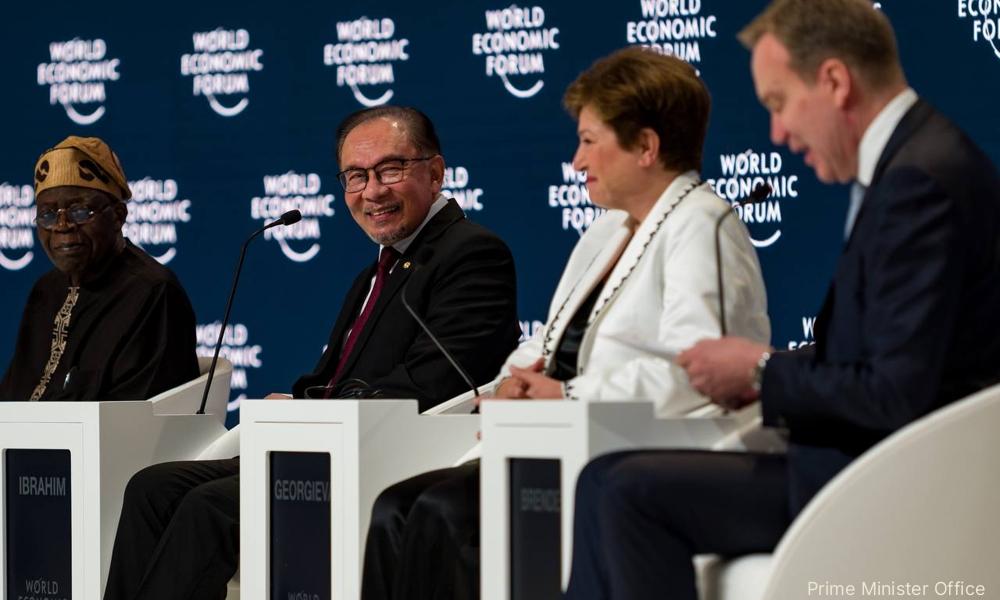Malaysia adopts a balanced foreign policy approach between the West and East and steers clear of any sort of position that is deemed provocative, Prime Minister Anwar Ibrahim said today.
He said Putrajaya engaged well with the United States and Europe, and at the same time maintained excellent bilateral relations with China, South Korea, and Japan.
“We engage and depend on the support, collaboration, and investments from the West, such as the United States and Europe, while at the same time maintaining excellent bilateral relations with China, (South) Korea, and Japan.
“Especially with China, as there have been growing investments and interest,” he said at the Special World Economic Forum’s opening plenary session: “A new vision for global development”.
Cumulatively, the United States is number one in terms of total investments in Malaysia and China increasingly has become a major investor.
Malaysia, he said, is very clear about not entering into any sort of a position that is deemed provocative against one another.
“We welcome investments based on our rules and will not enter into any sort of decision that is deemed to be provocative.”
Anwar, who is also the finance minister, said for a small emerging economy, the balancing act is not an easy feat.
“I think so far we have managed,” he said.
Need for broader engagement
The prime minister highlighted the need for broader engagement with the African, Latin American, and Middle East nations, pointing out that major economies tend to dictate terms and frequently exhibit condescension.
“We cannot do it alone and we will have to engage,” he said.
He said within Asean, despite some minor differences on foreign policy issues, the focus, engagement, and bilateral relationships between the member countries are excellent.
“We do not have any issues having to work together as a team. And that’s why Asean is now among one of the most cohesive forces, a sub-regional force in the world. And we are focusing more on trade investments and intra-trade investments,” he said.

On geopolitical issues, Anwar said despite the complex situation affecting the Middle East, particularly the anger and frustration over the Gaza crisis, the economies of Muslim countries should not be affected.
Anwar commended Saudi Arabia for hosting the meeting and urged the kingdom to continue playing a role in engaging with developing and emerging economies, especially those within the Muslim community.
“The issue (of Palestine) is important and is fundamental to us, but at the same time, we have to survive. The economy has to be strong and the fundamentals need to be built,” he said.
Themed “Global Collaboration, Growth and Energy for Development”, the two-day meeting convenes more than 1,000 global leaders from 92 countries, including heads of state and government, thought leaders from public and private sectors, as well as international organisations, academic institutions and non-governmental organisations.
- Bernama

No comments:
Post a Comment
Note: Only a member of this blog may post a comment.